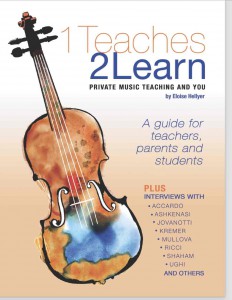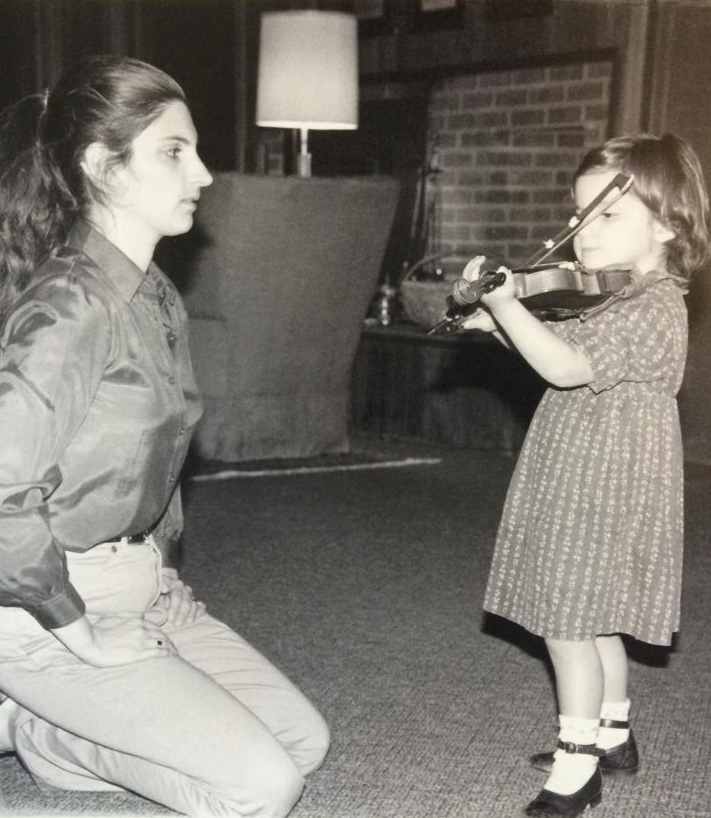Desperate Times, Desperate Measures. Or How to Deal With Your Strong-Willed Stubborn Student and Survive
“What to do with a stubborn student who insists on playing a piece I don’t think she’s ready for?” asks a perplexed teacher.
Well without being told, I can tell you right off the bat that this student is an adolescent. How do I know? I have/have had lots of students of all ages and have raised two daughters. Yes, passing through the murky shoals of darkest adolescence can by trying for everyone. So how do we navigate them with particularly high spirited and determined students? Naturally, when I say high spirited and determined, I mean they are high-spiritedly determined to do as they want, not as you are advising, otherwise we would be calling them obedient and otherwise perfect students. So what to do?
Of course, many of the comments and advice given to this teacher included lots of “you’re the teacher and what you say goes” stuff. If you really want to get into a battle of wills, go right ahead and try that tactic. One of several things will happen:
- You’ll get a sullen and uncooperative, and perhaps discouraged, student who will do what you ask but not very well.
- Your student will do as she wants anyway on her own (music is easily had by everyone nowadays at the click of a mouse) and do it badly without your supervision, making everyone’s life a lot more difficult in the long run.
- Your student will quit.
- Your student will cheerfully acquiesce to your mandates. Oh wait – we’re talking about stubborn and strong willed students, aren’t we? Scratch this last one.
So I have developed a few rules on dealing with this wonderful but potentially problematic type of student:
- Never forget that while adolescents may be children in your eyes, they are all grown up in their own opinion and think they know a lot more than you do, you old fogey. It will take years before they realize how much they don’t know: after all, humility is not a known symptom of adolescence. I would remind you of Mark Twain’s famous observation: “When I was a boy of 14, my father was so ignorant I could hardly stand to have the old man around. But when I got to be 21, I was astonished at how much the old man had learned in seven years.”
- Not all students are heading for careers and need to tick all the boxes to get into a good conservatory. While I don’t advocate skipping steps, we should remember that students are also supposed to have fun and with some of our students we can be a little more lenient and experiment with them to see what works.
- Just because you were a perfect student (and were you, really?) doesn’t mean your all students will or even should be.
- The high-spirited, stubborn and/or determined ones can be a lot more fun, if not more challenging (no one ever gets bored!) and are often the ones who will succeed at whatever they choose to do in life (see Mark Twain, above), if they are handled properly. That means you have to stay one jump ahead of them. It also means you have to find a way to deal with them that won’t exhaust you, so….
- They think they’re grown up? Then treat them like grown-ups: negotiate and share the responsibility. It’s a lot easier and more effective than constantly trying to impose your will on an incalcitrant subject.
A worried young teacher asked my advice not long ago about a really difficult (you guessed it, adolescent) student she had. To make matters worse, she had to teach this young fellow via internet, certainly not an ideal situation even though it’s very popular nowadays, as they live in different countries. It seems the lad just wouldn’t do anything well this teacher was asking him to do. Also, the personalities of the teacher and the student are almost diametrically opposed. The teacher had been a wonderful student, had had wonderful and famous teachers, had gone to wonderful conservatories where she had contact with lots of other violin students, and comes from a culture where teachers are held in high esteem and are to be obeyed. The student lives in a remote area with no contact with other instrumentalists and has a contrary, rebellious and strong-willed personality, although talented and ambitious like his teacher. You can see why the teacher was disconcerted – she had never encountered such a creature before: one who wanted to play well but wouldn’t obey the teacher!
What was my advice? Stop giving assignments and ask the student what he wants to play. The teacher, after expressing doubts (but she was at an impasse and didn’t have much to lose), did this and was quite shocked when the student came back with one of the most difficult pieces in the repertoire. My advice? Let him try it. Two measures at a time, and have lots of little exercises and etudes ready to help him when he would run into the inevitable technical problems that she knew were in his path. I know this is unorthodox advice, but with unorthodox cases….. desperate times call for desperate measures. After all, she was having no success with the usual way of doing things.
What happened? My young friend was quite surprised at how well her student did, how much more cooperative he became and how things started going much better.
It’s a question of what is your bottom line? If you want students who obey without question and defer to your superior wisdom, then you may sometimes find yourself in difficulty, especially with certain adolescents who are trying out their wings, trying to find their power. The better approach with them, in my experience, is to ask yourself, “how am I going to get this student to get where I think he needs to go while letting him think he’s running things?” Easy: let him tell you what he wants to do and then work with him to achieve it. Your student is going to love the feeling of being the boss. After all isn’t that what we’re training them to do – not need us anymore? Slowly, slowly we have to give up the reins and go from dictating, to guiding, to advising. It’s a long and slow process but it has to start somewhere. Where better than when your student lets you know in no uncertain terms that he’s ready to start?
Post author: Eloise Hellyer
Share this:
Buy it on www.sharmusic.com - eBook format, avaliable worldwide, paperback in North America
COPYRIGHT
ABOUT
A music teacher’s thoughts and observations on the teaching and the study of a musical instrument, hoping to be of help to parents, students and teachers.
PHOTO
AWARDED TOP 25 VIOLIN BLOG
CATEGORIES
TAGS
ARCHIVES
-
Agosto 2022
Agosto 2023
Agosto 2024
April 2015
April 2016
April 2017
April 2019
April 2020
Aprile 2022
Aprile 2023
Aprile 2024
August 2014
August 2015
August 2016
August 2017
August 2018
August 2019
August 2021
December 2014
December 2015
December 2016
December 2017
December 2018
December 2019
December 2020
Dicembre 2022
Dicembre 2023
Dicembre 2024
Febbraio 2022
Febbraio 2023
Febbraio 2024
February 2015
February 2016
February 2018
February 2019
February 2020
February 2021
Gennaio 2022
Gennaio 2023
Gennaio 2024
Giugno 2022
Giugno 2022
Giugno 2023
Giugno 2024
January 2015
January 2016
January 2017
January 2018
January 2019
January 2020
July 2015
July 2017
July 2019
June 2016
June 2017
June 2018
June 2019
June 2020
June 2021
Luglio 2022
Luglio 2023
Luglio 2024
Maggio 2022
Maggio 2023
Maggio 2024
March 2015
March 2016
March 2017
March 2018
March 2019
March 2020
March 2021
Marzo 2022
Marzo 2023
Marzo 2024
May 2015
May 2016
May 2018
May 2019
May 2020
November 2014
November 2015
November 2016
November 2017
November 2018
November 2019
November 2021
Novembre 2022
Novembre 2023
Novembre 2024
October 2014
October 2015
October 2017
October 2018
October 2019
October 2020
October 2021
Ottobre 2022
Ottobre 2023
Ottobre 2024
September 2014
September 2015
September 2016
September 2018
September 2019
September 2020
September 2021
Settembre 2022
Settembre 2023
Settembre 2024
RECENT POSTS
Terry G and Me, or Terry Gilliam on Where (or What) Practicing the Piano Will Get You…
The Teaching We Don’t Do Is More Important Than We Think
Overwhelmingness or What Teaching and Motherhood* Have in Common
Cellphone Serenity
How to Build Your Reputation – the Kind You Want
Desperate Times, Desperate Measures. Or How to Deal With Your Strong-Willed Stubborn Student and Survive
“Why Does My Teacher Get So Frustrated?” Letter to a Perplexed Student
Mount Rush-no-more….And How to Get There
Realizzato con VelociBuilder - Another Project By: Marketing:Start! - Privacy Policy




